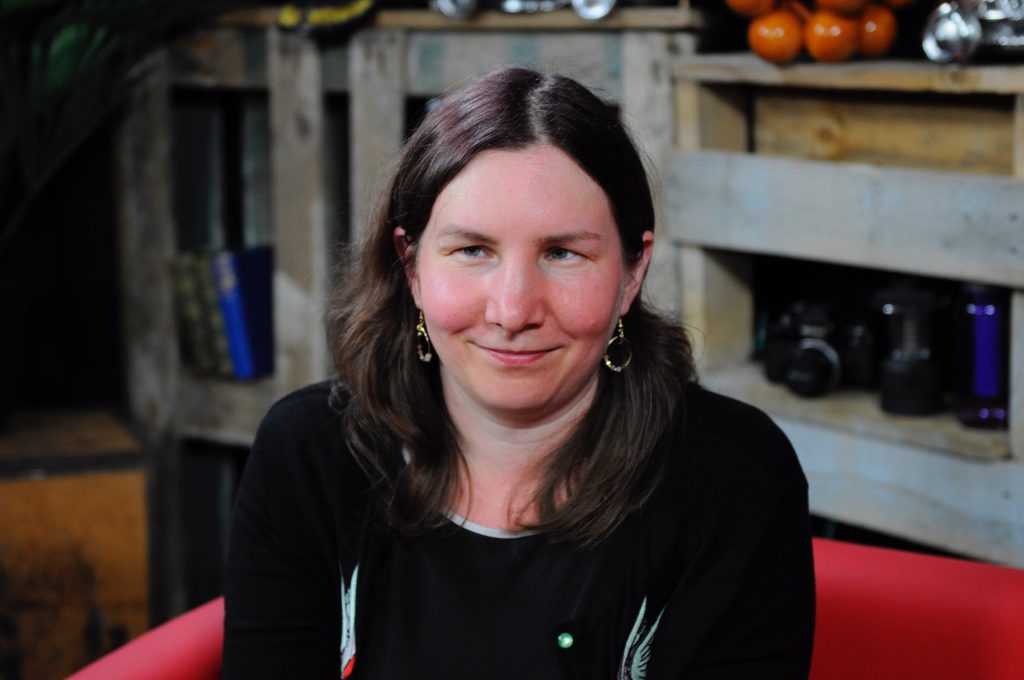The Lawbore Mental Health & Wellbeing interviews: Emma Jones
Any profession will have its own trials and tribulations, and the legal profession is certainly no exception, posing its own set of challenges that can cause strain upon the mental health of all those involved. Given the increasing societal awareness and the importance it plays in our day-to-day functioning, maintaining a good wellbeing is key to flourishing not only as a lawyer, but as a human more generally. One way to learn how to keep mentally well is by learning from those who have overcome their own adversities, seeking lessons from the experience of others.
Emma Jones is a Senior Lecturer in Law and acting Director of Student Welfare and Widening Participation at the University of Sheffield. Focusing her research on the role of emotions and wellbeing in legal education and the profession more generally, Emma has written multiple books and articles on the topic, as well as leading the Fit for Law project in partnership with LawCare. We spoke with her about the current relationship between law schools and mental health, and how mental health and wellbeing could be improved systemically, and more.

How did you first become interested in mental wellbeing and emotions in legal education and profession?
I worked as a solicitor for several years, then I decided to retrain and become a teacher. During my teacher training I was encouraged to reflect on my previous experiences of education and training. Reflecting on my time at law school (and in legal practice), I realised that there had been no real focus on issues relating to wellbeing and emotions. I was interested in finding out about why that was, so I ended up doing a PhD on the role of emotions in legal education.
What are the main factors that contribute to misconception around mental health in law? Are there any stereotypes that you think need to be dissolved?
The research I’ve undertaken with colleagues suggests that there is still a lot of stigma around mental health issues within the legal profession. This seems to be linked to the perception that a lawyer needs to project a strong emotionless persona to demonstrate their professionalism and progress in their career.

Unfortunately, this can mean that mental health issues are viewed as a weakness (wrongly, of course), leaving individuals afraid to discuss them in case they jeopardise their career or professional reputation. There are signs that things have been changing in recent years with individuals and organisations, such as the charity LawCare, doing great work in raising awareness around mental health. However, it will take time to enact the type of cultural change needed in the legal profession.
Given the situation around COVID-19, do you think that the recent shift to more online education has helped or hindered developments to make educational institutions better for the wellbeing of students?
I think one of the issues with COVID-19 was the suddenness of the shift to online learning. In the UK it had to be done very quickly due to lockdown and staff and students had no choice but to do their best in really difficult circumstances. That is very different from the situation where a university has planned an online programme and a student has chosen to study online. There can be advantages for wellbeing in online learning – it enables students to study in their home environment, at times that work for them, and offers flexibility for those who have caring and other commitments. However, this is very different from being forced to study online at a time where lockdown meant everyone was experiencing heightened emotions and challenges to their wellbeing in any event. My hope is that these circumstances may have really demonstrated to universities the importance of providing students with appropriate support to promote positive wellbeing. I don’t believe you can separate emotions and wellbeing from learning and I think the last few months have really illustrated how closely linked they are.
How do you think law schools can support students in a distance-learning environment?
One of the issues that came out of research I conducted with colleagues at The Open University was the importance of creating and fostering strong communities amongst online students. Distance-learners can feel isolated and separated from their fellow students and the law school in general. To combat this, law schools need to think about how they can really encourage a sense of belonging and inclusion. For new students, this can start even before they start, in pre-entry communications and materials. It can also be a key focus in inductions. Throughout programmes, using techniques in modules to facilitate debate and dialogue (such as discussion boards) can help. More widely, there are also social events that can take place, such as digital coffee mornings.
Can you share your own experiences of mental health?
I am happy to share my own experiences because everyone has mental health and it’s important that people should feel able to discuss whatever they are experiencing. I do experience periods of anxiety and have done so for many years. I’ve learnt to be better at spotting the ‘early warning signs’ and try to take proactive steps to stop my worries feeling overwhelming. For example, I make sure I’m building in time to exercise regularly (I’ve recently completed Couch to 5K), step away from social media and try to keep up a good sleep routine. These are simple self-care techniques, but it is so easy to forget them when life feels fast-paced and hectic.
What advice would you give to your younger self in regards to mental health?

Looking back, I wish I’d had more awareness about the importance of mental health. Not just my own, but also that of those around me. When I was studying and in legal practice, I didn’t really think about checking in with those around me about how they were feeling. Now I realise just how valuable that can be. I am a big fan of Student Minds‘ ‘Look After Your Mate’ programme because it encourages students to support friends experiencing mental health difficulties as well as helping them to become more aware of their own wellbeing.
What is the most stressful part of your job, and how do you deal with it?
I do love my job and feel fortunate to do it. There is no one specific part that is ‘most stressful’, but I think for me it’s about trying to make sure I balance my work with my other commitments. In particular, I have three children and I want to make sure I’m spending quality time with them and meeting all their needs. I wish there was a simple answer to how to juggle everything, but I think it’s about keeping working at getting the balance right, not feeling too guilty if you get it wrong sometimes, but also learning from your mistakes so you don’t keep repeating them.
Would you say the expectations you experience are external or self-imposed, and how do you keep a healthy balance?
There are some suggestions that lawyers tend to be perfectionists and place high demands upon themselves. At the same time, in both academia and legal practice, the external expectations can also be very high, whether that’s about publishing high quality research as an academic or meeting demanding billing targets as a practitioner. Something that I think is important is to be aware of your own limitations and to have the confidence to say ‘no’ when something isn’t right for you. Also, being able to accept that sometimes ‘good enough’ is fine can be really helpful.
How do you think the emphasis and focus on mental health and wellbeing is changing?

I think generally in society there is far more discussion of mental health and wellbeing these days. To some extent, this is now reflected in discussions about wellbeing within the legal profession too, which is helping to challenge some of the stigma I referred to above.
However, one thing that is concerning is that sometimes the focus seems to be on each individual legal professional having to be as resilient as possible, to cope with anything that’s thrown at them. It is important that discussions about mental health and wellbeing in the legal profession look at the wider structural and cultural aspects that are impacting on people, rather than expecting individuals to put up with potentially toxic working environments.
What would you say is the biggest challenge to mental health in legal education, and in the profession more generally?
One challenge that I am particularly concerned with is the way so much of legal education and training fails to acknowledge the important role of emotions within teaching and learning. I think this also follows through into the legal profession where practitioners are often having to perform complicated emotional balancing acts, but without the right support or training to do so. Teaching students to be able to acknowledge and interpret their emotions and understand the cues those emotions are giving about wellbeing is very important.
Are there any legislative reforms that you think should be made with regards to mental health?
I am involved in the therapeutic jurisprudence movement. This basically argues that, when laws are made and implemented, it is important to take into account their impact on peoples’ wellbeing. That doesn’t mean that wellbeing is the only, or even always the most important, factor to consider. However, it does require policy and law-makers to take into account the potential consequences of the law in terms of wellbeing and mental health. I think taking this sort of therapeutic jurisprudence approach is the best way forward.

Many thanks to Athena Kam for this interview in the new Mental Health and Wellbeing interview series. Athena is a first year law student at the University of Oxford, with a view of becoming a barrister one day. She is the forthcoming Secretary for the Oxford University Bar Society, having previously held the position of Mooting Officer. She hopes to help push for a more inclusive and mental-health legal profession.
